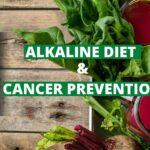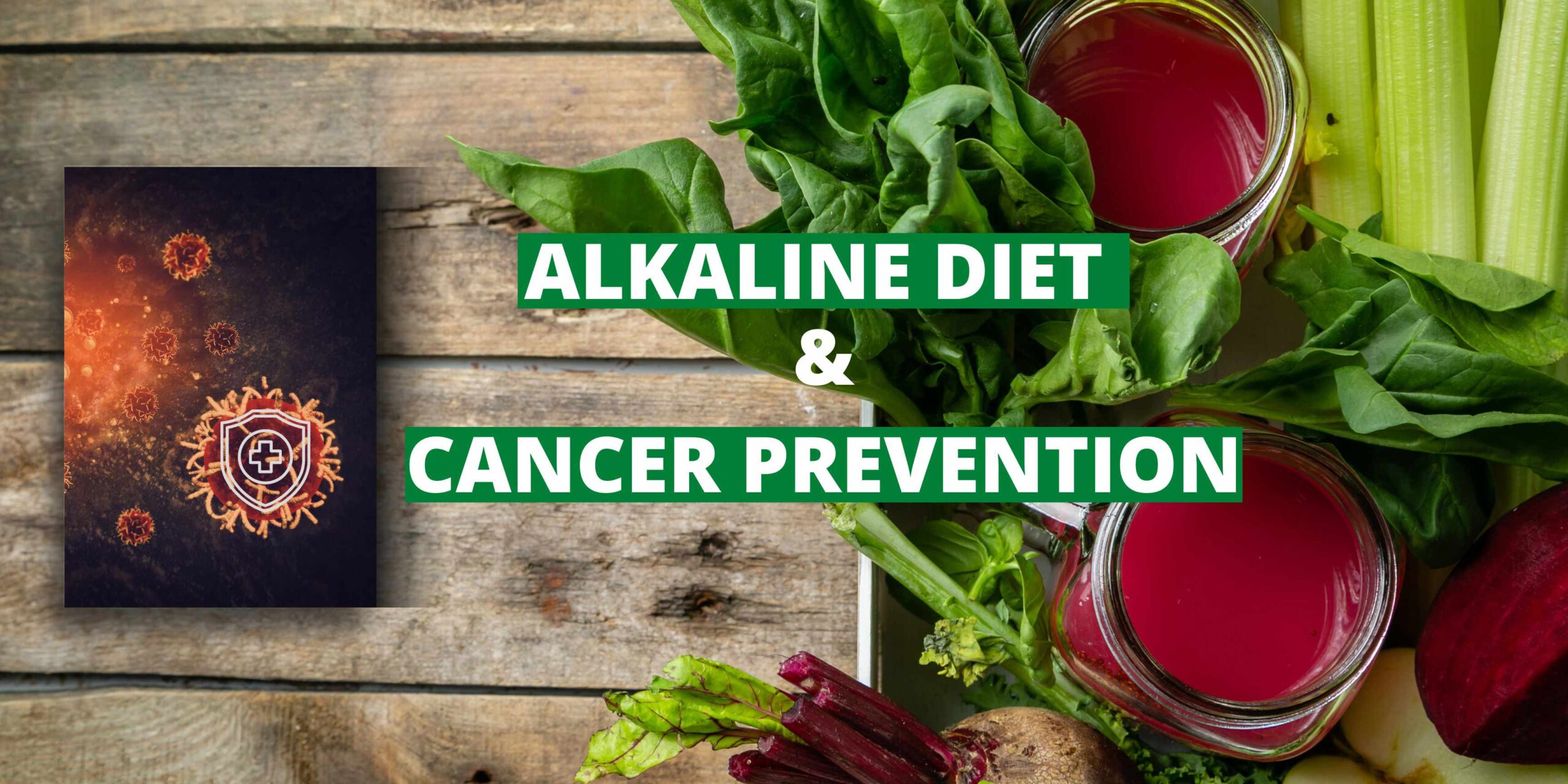Proponents of the alkaline diet argue that maintaining an alkaline environment in the body can prevent or treat cancer. The relationship between the alkaline diet and cancer prevention or treatment is a topic of discussion, but it is important to note that scientific evidence supporting the specific claims made by proponents of the alkaline diet in relation to cancer is limited. There are claims that an alkaline diet may help prevent cancer by creating an environment less conducive to cancer cell growth. While the alkaline diet encourages the consumption of fruits, vegetables, and other healthy foods, some of the broader claims about its impact on cancer need careful consideration. However, scientific evidence supporting this idea is currently insufficient.”
When people refer to “alkaline” in the context of the body, they are often discussing the pH balance within the body’s internal environment. This pH balance within the body’s internal environment is crucial for maintaining the proper functioning of various physiological processes daily. The term “pH” stands for “potential of hydrogen,” and it measures the acidity or alkalinity of a solution on a scale from 0 to 14. A pH of 7 is considered neutral, values below 7 are acidic, and values above 7 are alkaline or basic. The human body maintains a slightly alkaline pH overall, with a normal blood pH range of about 7.35 to 7.45. This pH balance is essential for the proper functioning of various biochemical processes within the body. Maintaining this pH balance is very important for the enzyme activities of various biochemical reactions in the body. Cellular activities, including nutrient transport, waste removal, and energy production, are sensitive to changes in the body pH. The body tightly regulates the pH of the blood within a narrow range, typically between 7.35 and 7.45. Blood that is too acidic or too alkaline can have serious consequences, affecting these enzyme activities. The body relies on the balance between acids and bases to maintain homeostasis. Certain components of the immune system function optimally within a specific pH range. Maintaining the appropriate pH level supports the body’s ability to defend against pathogens and infections
How does the body regulate the pH?
The body has intricate mechanisms to tightly regulate its pH levels, particularly in the blood. The kidneys and lungs play key roles in regulating acid-base balance through processes like excretion of acidic or alkaline substances thus regulating the acid-base balance in the body. Different parts of the body may have varying pH levels. For example, the stomach is highly acidic to aid in digestion, while the blood is slightly alkaline. However, it is important to note that the body has highly effective mechanisms for regulating its pH, external factors, such as diet and lifestyle, can influence these processes. It should be noted that even significant changes in dietary pH are unlikely to substantially impact blood pH because of this regulatory phenomenon.
What is alkaline diet?
In the context of the alkaline diet and discussions about health, the term “alkaline” is often used more broadly to describe foods or diets that are believed to have an alkalizing effect on the body in other words it is consuming foods that are considered alkaline-forming, such as fruits, vegetables, and certain grains, while minimizing acidic foods like meat and dairy. Proponents argue that this dietary approach can support overall health by contributing in maintaining a more optimal pH balance or in restoring the body’s pH balance when needed. The alkaline diet is said to have anti-inflammatory effects, potentially benefiting conditions associated with inflammation.
Although a balanced approach is needed, here are some general guidelines for foods that are commonly associated with the alkaline diet or alkaline forming foods. Most fruits are considered alkaline-forming, including citrus fruits, melons, berries, and apples. Many vegetables are alkaline, especially leafy greens like kale, spinach, and swiss chard. Other common alkaline vegetables include broccoli, cauliflower, and cucumber. Nuts and seeds like almonds, chestnuts, flaxseeds, and pumpkin seeds are often included in an alkaline diet. Some legumes, such as lentils and chickpeas, are considered alkaline-forming. Certain healthy oils, such as olive oil and coconut oil, are often recommended in moderation. Many herbs and spices, including basil, thyme, and turmeric, are considered alkaline. Certain herbal teas, like chamomile or peppermint, are considered neutral or slightly alkaline. While dairy products are acidic according to the principles of the alkaline diet, it is important to consider their nutritional benefits, especially regarding calcium and other essential nutrients. It is important to note that individual responses to dairy can vary. Some people may tolerate dairy products well, while others may experience digestive discomfort or have lactose intolerance. Many dairy products, including milk, cheese, and yogurt, are considered acidic. The acidity is attributed to the presence of certain compounds, particularly proteins like casein and phosphorus. Non-dairy sources of calcium, such as leafy green vegetables and fortified plant-based milk alternatives, may be recommended as substitutes. Highly processed and refined foods, including sugary snacks and sodas, are often acidic and are typically limited in an alkaline diet. Meat, poultry, and fish (animal proteins) are often considered acidic. Some versions of the diet recommend limiting or avoiding these foods. Individual responses to alkaline diet can vary. What works for one person may not work for another, and factors like genetics, underlying health conditions, and overall diet quality play a role. It is important to consider the overall lifestyle factors associated with the alkaline diet. For example, the diet encourages hydration, consumption of nutrient-dense foods, and avoidance of highly processed items, all of which can contribute to better overall health and potentially reduce inflammation. The relationship between the alkaline diet and inflammation is an area of interest, and some proponents of the alkaline diet claim that it can help reduce inflammation in the body. However, it is crucial to note that while certain aspects of the diet may have anti-inflammatory effects, the overall scientific evidence supporting the broad claims about inflammation and the alkaline diet is limited. Here are some precautions to consider while on an alkaline diet: It is important to note that no diet should be considered a substitute for conventional medical treatments for cancer. The alkaline diet encourages the consumption of fruits, vegetables, nuts, and seeds, making it potentially suitable for individuals interested in a plant-based or vegetarian diet. The alkaline diet can be restrictive, and extreme limitations on certain food groups may lead to nutrient deficiencies, so avoid extreme restriction. Ensure that your diet remains well-balanced, providing all essential nutrients. The alkaline diet is just one aspect of a healthy lifestyle. One should incorporate regular physical activity, sufficient sleep, and stress management for comprehensive well-being. Individuals considering this diet should do so with caution and consult with healthcare professionals or registered dietitians to ensure that their nutritional needs are met in a balanced and evidence-based manner. In conclusion, while the alkaline diet encourages the consumption of healthy foods like fruits and vegetables, its broader claims, and the underlying concept of altering body pH through diet have been met with scepticism within the scientific community. There is a lack of consensus among the nutrition experts regarding the categorization of foods as either alkaline or acidic. The pH of foods can vary based on factors such as preparation methods and individual metabolism.
Is drinking alkaline water overhyped?
Water is neutral. Some versions of the alkaline diet claim health benefits from consuming alkaline water. Alkaline water is water that has been ionized to increase its pH level, and typically has a pH level higher than 7. Some water filters are designed to raise the pH of water by adding minerals like calcium, magnesium, and potassium. There are commercially available alkaline water drops or powders that can be added to regular water to increase its alkalinity. Drinking water with a significantly altered pH may affect electrolyte balance. It is important to note that scientific evidence supporting these claims is limited and it is crucial to approach the consumption of alkaline water with a balanced perspective. Drinking water, in general, is important for hydration, and maintaining a balanced and varied diet is key for overall health.
In summary, Individuals interested in managing inflammation through diet should consider adopting a well-balanced, varied diet rich in fruits, vegetables, whole grains, and healthy fats, while minimizing processed foods and excessive intake of inflammatory substances. The anti-inflammatory foods that alkaline diet emphasizes include consumption of fruits, vegetables, nuts, seeds, and other whole foods, which are generally rich in antioxidants and anti-inflammatory compounds. These foods may contribute to reducing inflammation in the body. The restrictive nature of the alkaline diet may make it challenging for individuals to maintain over the long term, potentially leading to frustration and a return to less healthy eating habits.
Listen to your body, while the alkaline diet may offer some potential benefits related to anti-inflammatory properties, it’s essential to approach these claims with caution. More research is needed to fully understand the mechanisms through which diet influences inflammation and whether the specific pH balance advocated by the alkaline diet plays a significant role. The broader health claims associated with maintaining an alkaline state in the body, such as disease prevention or improved energy levels, lack robust scientific evidence. Overall, maintaining a balanced and varied diet, staying hydrated, and adopting a healthy lifestyle contribute to the body’s ability to regulate its internal pH and support overall well-being.





